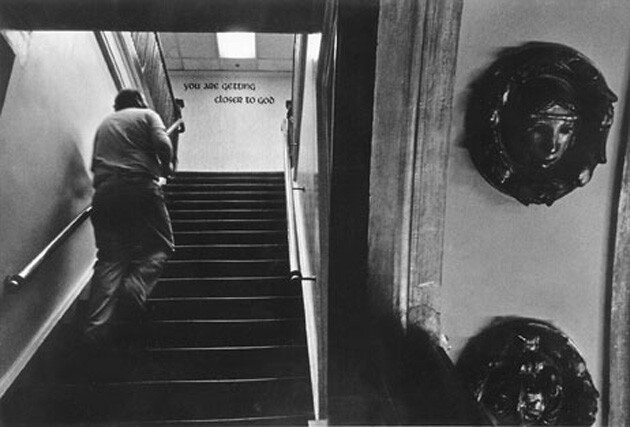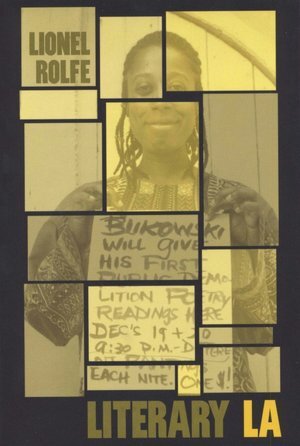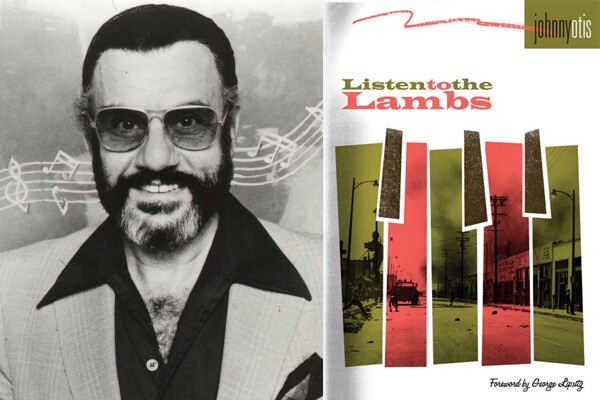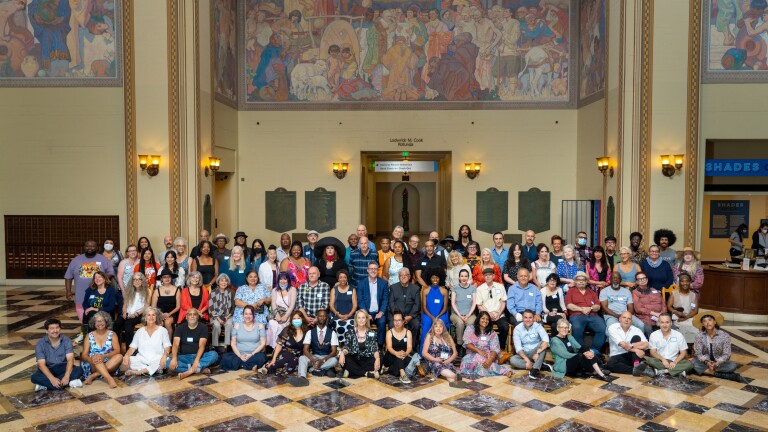Lionel Rolfe and Johnny Otis: Literary Icons of L.A.

There's a vibrant landscape of art, music and poetry spread across Los Angeles. Generations of eclectic writers share their fire nightly in venues like the Talking Stick in Venice and A Mic & Dim Lights in Pomona. Bookstores like Beyond Baroque and the Last Bookstore provide focal points for the community. I'm a third-generation L.A. native and have spent the last 15 years in the city's underground. L.A. Letters will celebrate bright moments from this galaxy of venues and authors. This first column highlights the works of Lionel Rolfe and Johnny Otis.
Lionel Rolfe is an author and journalist who's written about L.A. writers longer than just about anyone. His best-known book, "Literary L.A.," first published in 1981 and now in its 3rd edition, is a pioneering work that melds literary criticism, biography, and narrative journalism. Rolfe's catalog of work foreshadowed the current explosion of studies on Los Angeles authors. Week after week in his Sunday column for the Los Angeles Herald Examiner he wrote profiles of writers like Henry Miller, Robinson Jeffers, Malcolm Lowry, Charles Fletcher Lummis, Jack London, Upton Sinclair, Oscar Zeta Acosta and many others. His essay collection Fat Man On the Left is a compendium of his best writings, often about his darkest hours living and working in California.

Born in 1942, Rolfe has lived mostly in L.A. with several stints in the Bay Area. "We moved to L.A. when I was about 10," he says. Rolfe attended L.A. City College in the '60s, where he tried filmmaking but ended up writing. He briefly shared an apartment with Ron Karenga, later the head of the US organization, adversaries to the Black Panthers. "I did like City College," he recalls, "[I] went to the Xanadu, the coffeehouse where blacks and whites first got together, fought civil rights wars. I heard a lot of jazz and rhythm and blues. It was exciting."
Rolfe was a journalist for almost 50 years, though he worked for a time as a police beat reporter in Oakland. He recalls his first journalism job at the Pismo Beach Times: "I loved the way the fog came in and made the place so magic and beautiful. It had a real Steinbeckian quality to it." Relocating to California's Central Coast as a young journalist gave Rolfe an opportunity to do a lot of writing and the space to do it. He soon began writing for the Los Angeles Free Press.
The L.A. Free Press, Rolfe says, "was the first underground paper. Then a string of them developed all over the country, inspired by the Free Press. They helped to fight the war in Vietnam. In Los Angeles the last editor of the Free Press became the first editor of the L.A. Weekly, which was the first 'alternative paper.' The Reader, which I mostly wrote for, started about the same time. The alternatives grew up in the late '70s, when the underground papers were imploding."
"By the '80s I was freelancing a lot for the L.A. Times, and then the Herald Examiner," Rolfe says. "Most of 'Literary L.A.' was written in this period as magazine pieces. My first piece was about Thomas Mann and the controversy over Schoenberg." Chronicle Books eventually assembled these columns and published them as "Literary L.A." Rolfe's writings and research is now archived in the Special Collections Library at USC's Rare Books and Manuscripts Collection. His seven books and hundreds of articles foreshadowed the ever-growing interest in "L.A. Letters."

Longtime Los Angeles legend Johnny Otis, the "Godfather of Rhythm & Blues," died on January 20th, 2012 at the age of 90. Besides his fame as a pioneering musician, Otis wrote several books, beginning with "Listen to the Lambs" in 1968.
Equal parts memoir, racial manifesto and sociopolitical history, the book (recently republished by The University of Minnesota Press) is an on-the-spot written account of the 1965 Watts Riots. The tragic events inspired Otis, 46 at the time, to interview dozens of Watts citizens during the insurrection. It's an especially bold and important book invaluable to anyone interested in an alternate history of the riots - what really happened in Watts during 1965.
Observations made by Otis in 1968 hold true even today. For example, "White America stands at a critical crossroad. She can meet ghetto disorders with increased police power in the belief that oppressive punitive actions will make the problem go away or she can start getting at the economic and social causes of the riots." Otis addressed these economic and social causes very clearly in his book and that's why it remains relevant four decades later.
Much respect to the legacy of Johnny Otis. Along with Lionel Rolfe, he's made an important contribution to Los Angeles history. Rolfe and Otis are both giants of L.A. Letters.
Mike Sonksen aka Mike the Poet is a spoken word artist, tour guide, educator, journalist, and historian. His column L.A. Letters celebrates bright moments from literary Los Angeles. See his Departures StoryShare videos here and here. Keep up with his activities by following his tumblr and Youtube channel.
Top photo by Phil Stern, from the cover of Fat Man on the Left.


